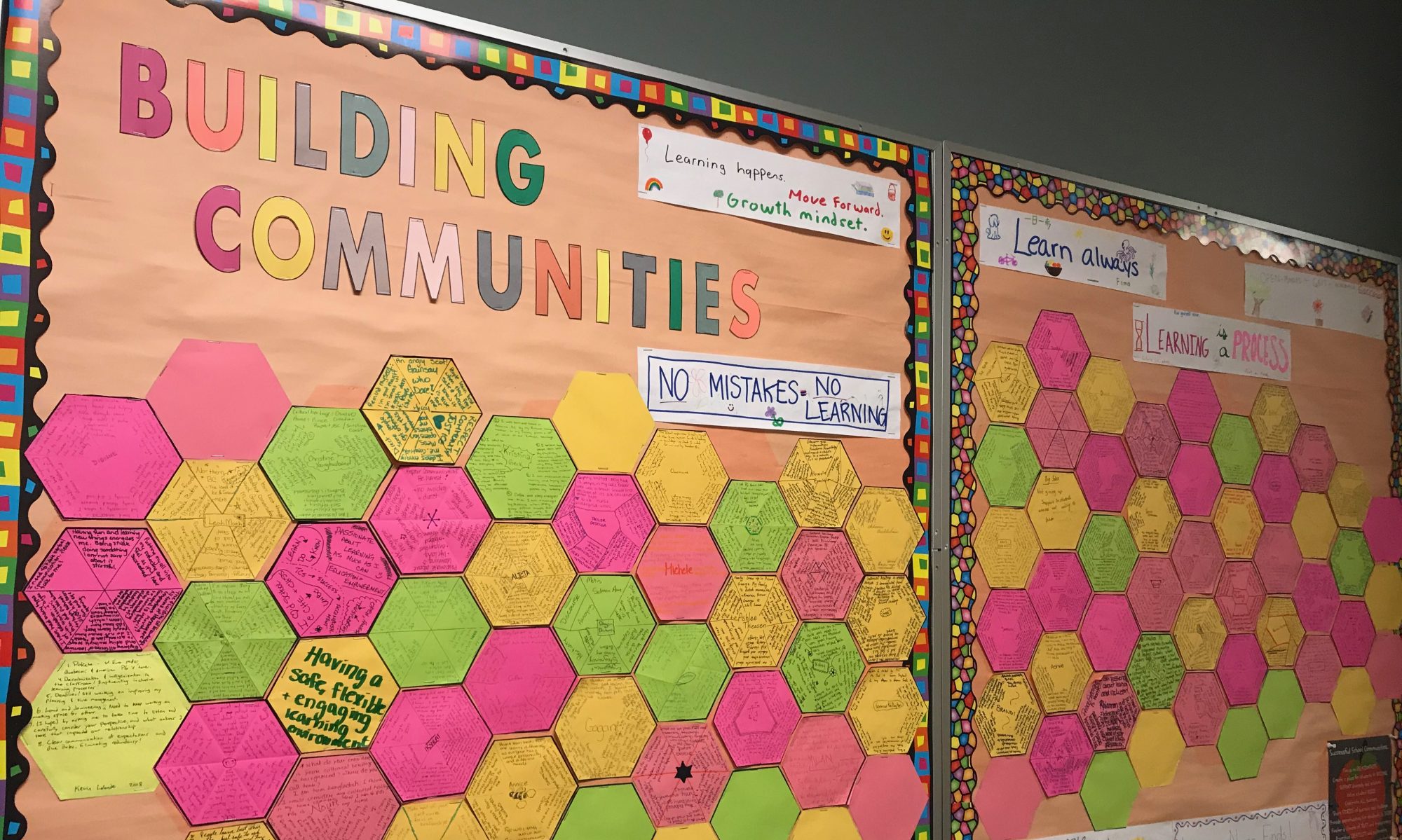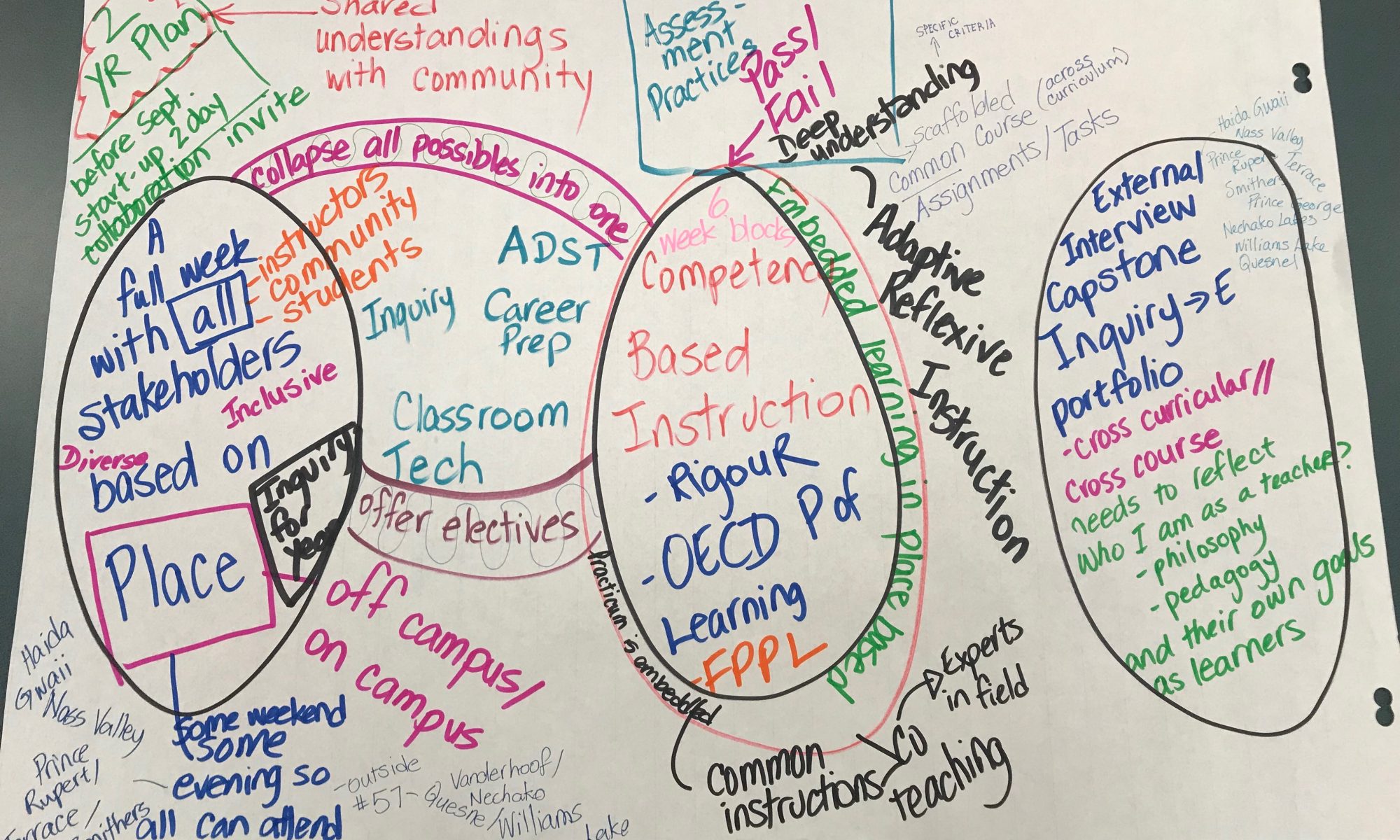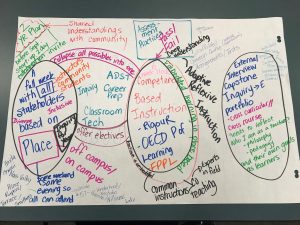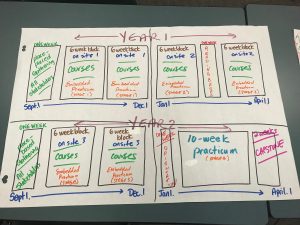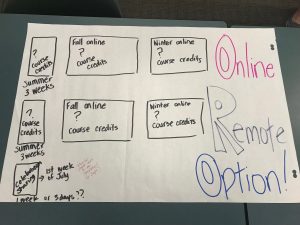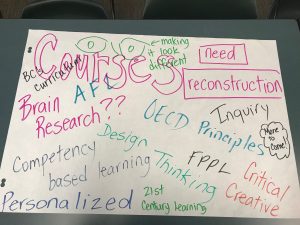I had to share this just because I think it is very cool … always seems that it is the actual planning that trips up so many of our research based grads students, and it often causes them to end up in the MED rather than the research stream …
Kids aren’t failing school–school is failing kids
While US-centric, some interesting ideas and observations …
“For many kids, what they learn in high school isn’t preparing them for success in college or in their career. A new report delves into how our education system is letting them down.”
https://www.fastcompany.com/90252729/kids-arent-failing-school-school-is-failing-kids
Teacher Preparation Programs
Here are some sites that discuss changing Teaching Preparation Programs – a couple are outlines from conferences examining ideas:
https://ssir.org/articles/entry/a_revolution_begins_in_teacher_prep
https://www.educationevolving.org/files/Reimagining-Teacher-Preparation.pdf
http://www.oecd.org/education/school/OECD%20ITP%20Brochure.pdf
http://www.oecd.org/education/ceri/Background_document_to_Symposium_ITEL-FINAL.pdf
http://cdl3.cdl.cat/WFATE/guidebook-wfate.pdf
OECD Principles of Learning
Learning Sustainable Cultural Safety …
Lautensach, A.K. & S.W. Lautensach. 2018. Learning Sustainable Cultural Safety in a Crowded, Warming World. Journal for Sustainability Education (March).
http://www.susted.com/wordpress/content/learning-sustainable-cultural-safety-in-a-crowded-warming-world_2018_06/
The Big Idea behind the article was that education for sustainability and education for cultural safety can be reconciled and made to reinforce each other – contrary to some claims in the literature that educators had to choose and prioritise between opposing aims.
Deep Adaptation
Thanks Alex …
Deep Adaptation: Resilience, Relinquishment, Restoration (Bendell 2018)
Friesen (2018) suggested for teacher educators to explore their unexamined assumptions (thank you Susan for the link). One implicit assumption that I notice about our program (and others like it) manifests in the frequent calls for ‘preparing learners for employment’ or for ‘the real word’. This qualifies as a ceteris paribus fallacy, the assumption that everything outside one’s focus will remain unchanged for the time being. Bendell argues that we all need to prepare for the exact opposite, namely the prospect that most of the sources of support we have come to rely on are likely to collapse or disappear within our lifetime. I suggest that teacher training for the 21st century must focus on empowering learners to cope with that prospect. Bendell’s paper has inspired me more than just about anything else I have read this year:
Bendell, Jem. 2018. Deep Adaptation: A Map for Navigating Climate Tragedy. IFLAS Occasional Paper 2 www.iflas.info (July 27). Occasional Paper, Institute of Leadership & Sustainability (IFLAS), University of Cumbria, UK. http://www.lifeworth.com/deepadaptation.pdf (accessed 29 July 2018)
Here is how I interpret his three principles in the context of teacher education:
– Empower learners to help build community resilience to mitigate the outcomes of collapse – e.g. aim for the safe operating space between ecological and social boundaries as described by Raworth’s Donut Economics. https://www.thelancet.com/pdfs/journals/lanplh/PIIS2542-5196(17)30028-1.pdf The first thing learners can do is study Raworth’s model.
– Relinquish what traditions, ideals and practices have become counterproductive – such as the ideals of limitless growth, or the right to receive or extract even more resources. Get used to the idea of making do with much less – but strive to distribute it more equitably.
– Restore practices and structures that can facilitate a Great Transition to a sustainable future of acceptable quality – respect for the intrinsic worth of all life forms would be a great start, as was modelled by many indigenous cultures from time immemorial. Colonialism was a mere blip in history, and so is ecological overshoot!
Alex’s Ideas … Alpha – Omega
- Our Alpha and Omega Events in the NW BEd program
Aim: to provide symmetric anchor experiences that enable student teachers to effectively connect their training to the physical, cultural, environmental and historical aspects of place.
Requirements: A location in a relatively unspoiled natural environment – a place that holds cultural and spiritual significance in the views of the local indigenous populations, a natural place that has not yet been bulldozed or paved over. NOTE: Such a place may be hard to find in the average community but the effort is well worth it in our experience.
Procedure: On the first day of the program, cohort and faculty meet in the specified place, form a talking circle and share their experiences, feelings, aspirations and hopes. This is repeated after two years on the last day of the program. Connections to the place and to its history, to the history of the people of the land and to all life forms around us are emphasized on both occasions.
From Gretchen
| Entrance | Midpoint (end of 1st/beg of 2nd) | End |
| · welcoming ceremony
· elder and community · presence · creation of community of learners through introduction of, and participation in triads · beginning stages of e-portfolio · resource field trips · small school field trips · get 2nd year mentors · volunteer position placement combined with observation
|
· remindful ceremony
· elder and community presence · extension of community of learners, extension of triads · e-portfolio an expected vehicle of expression · more diverse school field trips · become a 2nd yr mentor · volunteer position extended · Transformative Inquiry https://www.uvic.ca/ education/inquiry/
|
· gratitude ceremony
· elder and community presence · celebration of community of learners · e-portfolios and Transformative Inquiries publically shared and celebrated as final demonstrations of learning · shared meal/feast/potluck |
